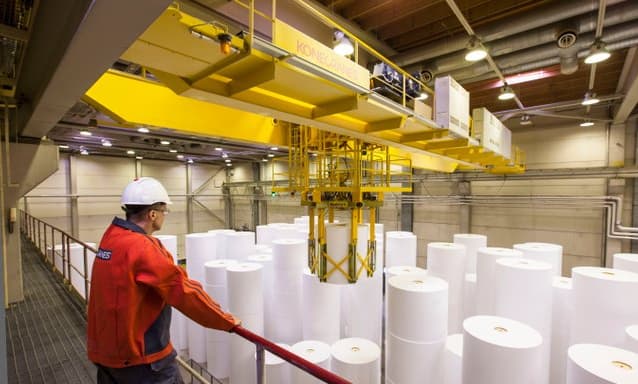
Perhaps the publishing sector in Turkey is one that is most affected by the fluctuation in the exchange rates of the Turkish lira against foreign currencies, after the decision of the Central Bank of the Republic of Turkey (CBRT) to cut the interest rate, and President Recep Tayyip Erdogan’s support of this policy. As the Turkish lira gradually depreciated against the dollar, the price of paper, the major raw material for printing books and newspapers, increased.
However Turkey’s paper crisis began way back in 2005 since closure of Sika, which was the first factory that produced local paper since 1936. After its closure, Turkey began importing paper from abroad and with the coronavirus pandemic, the price of paper and books increased significantly.
According to a data issued by the Turkish Statistical Institute (TURKSTAT), the price of paper products which surged by 45%, was one among three products that achieved the highest increase. The rapid depreciation of the Turkish lira against the euro and the dollar has also severely affected the paper and printing trade during the past two years. Newspapers were forced to suspend weekend supplements, while others reduced the number of their pages. Today, over a 100 local newspapers and publishing houses in Turkey have closed down, unable to cover printing and paper costs.
The Turkish Publishers Association (TPA) stated that the publishing sector, whose need for paper is almost completely dependent on imports, is facing severe difficulties, especially after the recently implemented economic policies and the decline in the value of the Turkish lira.
The association also called on the government to reverse the new economic policies that caused the exchange rate to rise, and to import paper itself or decide to raise value-added tax on paper import, and apply the privileges granted to European Union countries in paper imports to Turkey.
In a statement on the current publishing crisis, TPA President Kenan Kocaturk said that the spiraling cost of paper is making most publishers think about reviewing their plans – be it related to their production, how to set the price of a book, maintaining relations with the reader, or even contemplating whether or not to continue in the publishing sector.
Major publishing houses in Turkey also expect a significant increase in book prices during the coming period. “Because of the ongoing pandemic, and the rapid depreciation of the lira against the dollar, the prices of books will double or even triple. It is important that we share these facts with our readers. Since the reader cannot buy books, publishers and booksellers will not be able to sell books either. A disaster is expected for everyone. We had hoped to somehow overcome this crisis, but all expenditures in the publishing sector, with the exception of human labour, are in foreign currency; paper, printing, ink, gasoline used for transportation, etc,” explains Kocaturk.
Speaking to London-headquartered pan-Arab media outlet Al-Araby Al-Jadeed (The New Arab), poet Omar Shishman adds, “We have focused on direct sales for a while through our online store, and we invite readers of other publishing houses to buy books directly from publishers. This is not a new situation, as for the last ten years, we have not had a single bookstore or book distributor other than Pandora who is punctual with batch payments. If we want to support the publishing houses, we have to buy books directly from them.”





